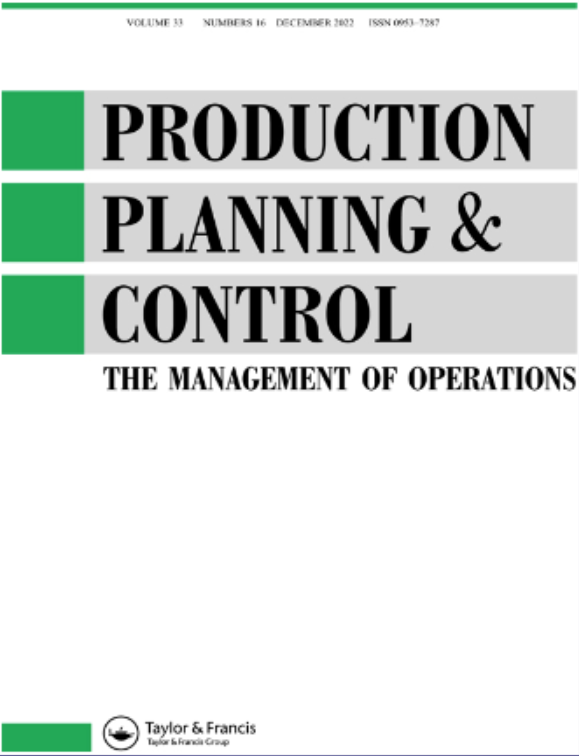Lean manufacturing systems in the area of Industry 4.0: a lean automation plan of AGVs/IoT integration
IF 5.4
3区 管理学
Q1 ENGINEERING, INDUSTRIAL
引用次数: 31
Abstract
Abstract Industry 4.0 represents a new industrial paradigm ignited by disruptive technologies that can transform manufacturing into a cyber-physical system that integrates products, people and processes. However, there is little guidance concerning how to implement and integrate Industry 4.0 technologies by existing lean manufacturing (LM) systems. We select autonomous guided vehicles (AGVs) and internet of things (IoT) to develop an action plan that helps managers integrate Industry 4.0 technologies into their manufacturing systems and achieve lean automation. We conducted a case study of a large manufacturing company that introduced AGVs and IoT to automate its lean operations. We used socio-technical systems (STSs) design logic to integrate the two distinct domains (lean and automation) into an action plan that successfully meets six lean automation objectives. The findings demonstrate that AGVs implementation should include three phases: design, integration and continuous improvement. The lean automation objectives are: cost, reusability, reliability, simplicity, compactness, fit, engage and culture. The lean automation plan successfully manages the interactions and interplay between social factors (people and culture), technical factors (infrastructure and technology) and operational factors (routines and processes). The lean automation plan has significant managerial implications helping companies integrate lean philosophy, which is people-centric, with Industry 4.0 technologies, which promote efficiency via automation.工业4.0领域的精益制造系统:agv /IoT集成的精益自动化计划
工业4.0代表了一种新的工业范式,它由颠覆性技术点燃,可以将制造业转变为集成产品、人员和流程的网络物理系统。然而,关于如何通过现有的精益制造(LM)系统实施和集成工业4.0技术的指导很少。我们选择自动导引车(agv)和物联网(IoT)来制定行动计划,帮助管理者将工业4.0技术集成到他们的制造系统中,实现精益自动化。我们对一家大型制造公司进行了案例研究,该公司引入了agv和物联网来实现精益运营的自动化。我们使用社会技术系统(sts)设计逻辑将两个不同的领域(精益和自动化)集成到一个成功满足六个精益自动化目标的行动计划中。研究结果表明,agv的实施应包括三个阶段:设计、集成和持续改进。精益自动化的目标是:成本、可重用性、可靠性、简单性、紧凑性、适用性、参与性和文化。精益自动化计划成功地管理了社会因素(人和文化)、技术因素(基础设施和技术)和操作因素(惯例和过程)之间的相互作用和相互作用。精益自动化计划具有重要的管理意义,有助于公司将以人为本的精益理念与通过自动化提高效率的工业4.0技术相结合。
本文章由计算机程序翻译,如有差异,请以英文原文为准。
求助全文
约1分钟内获得全文
求助全文
来源期刊

Production Planning & Control
管理科学-工程:工业
CiteScore
19.30
自引率
9.60%
发文量
72
审稿时长
6-12 weeks
期刊介绍:
Production Planning & Control is an international journal that focuses on research papers concerning operations management across industries. It emphasizes research originating from industrial needs that can provide guidance to managers and future researchers. Papers accepted by "Production Planning & Control" should address emerging industrial needs, clearly outlining the nature of the industrial problem. Any suitable research methods may be employed, and each paper should justify the method used. Case studies illustrating international significance are encouraged. Authors are encouraged to relate their work to existing knowledge in the field, particularly regarding its implications for management practice and future research agendas.
 求助内容:
求助内容: 应助结果提醒方式:
应助结果提醒方式:


